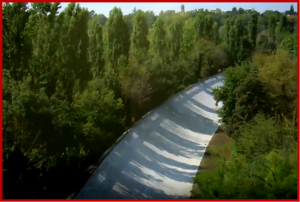
If you want to see Formula One live and you’re from Germany, you could bank on Monza so to speak.
Germany will not host a race of this year’s Formula One world championship, after the FIA issued a revised calendar on Friday listing 19 races. Neither of the two traditional tracks used were able to reach an agreement with Bernie Ecclestone, who undoubtedly was demanding princely sums of money for the right to stage a race in the faltering series.
Germany of course was the home of seven-time world champion Michael Schumacher. Moreover, though Germany is home to Daimler whose Mercedes brand won the championship last season with the help of driver Nico Rosberg and Sebastian Vettel. Vettel, a four-time champion with Red Bull who now drives for Ferrari is also German.
Either Hockenheim or the Nürburgring – which had previously shared the race under an agreement that alternated venues – apparently walked away from the series, which has seen attendance and viewership decrease in recent years as grids shrank and some teams choose only to race at certain venues to decrease costs. Speculation has it that Ecclestone refuses to rent the tracks and/or share revenue, demanding instead that the tracks pay Formula One hefty fees.
The change to the F1 calendar means there will now be a three-week gap between Grands Prix in Great Britain and Hungary, which play host to Formula One racing on the first and last weekends of July respectively.

About Ken Zino
Ken Zino, editor and publisher of AutoInformed, is a versatile auto industry participant with global experience spanning decades in print and broadcast journalism, as well as social media. He has automobile testing, marketing, public relations and communications experience. He is past president of The International Motor Press Assn, the Detroit Press Club, founding member and first President of the Automotive Press Assn. He is a member of APA, IMPA and the Midwest Automotive Press Assn.
He also brings an historical perspective while citing their contemporary relevance of the work of legendary auto writers such as Ken Purdy, Jim Dunne or Jerry Flint, or writers such as Red Smith, Mark Twain, Thomas Jefferson – all to bring perspective to a chaotic automotive universe.
Above all, decades after he first drove a car, Zino still revels in the sound of the exhaust as the throttle is blipped during a downshift and the driver’s rush that occurs when the entry, apex and exit points of a turn are smoothly and swiftly crossed. It’s the beginning of a perfect lap.
AutoInformed has an editorial philosophy that loves transportation machines of all kinds while promoting critical thinking about the future use of cars and trucks.
Zino builds AutoInformed from his background in automotive journalism starting at Hearst Publishing in New York City on Motor and MotorTech Magazines and car testing where he reviewed hundreds of vehicles in his decade-long stint as the Detroit Bureau Chief of Road & Track magazine. Zino has also worked in Europe, and Asia – now the largest automotive market in the world with China at its center.



More tracks need to follow suit.
Series needs access to dictators and national treasuries to survive.